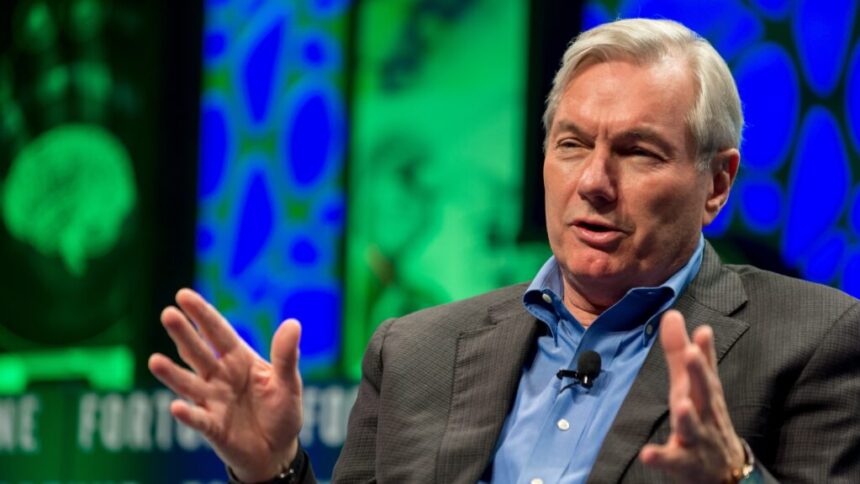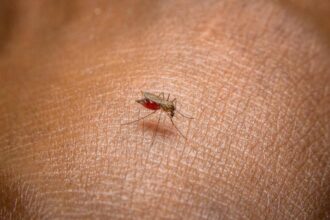Robert F. Kennedy Jr., known for his “Make America Healthy Again” movement, is currently in the midst of a series of meetings in preparation for his confirmation as the head of the Department of Health and Human Services in the upcoming year. With his strong critiques of the food, pharmaceutical, and healthcare industries, many are curious to see how his beliefs will shape actual policies once he assumes office.
One area where there seems to be broad agreement is the need to limit corporate influence in government and improve the accessibility of healthy foods for all Americans. Additionally, there is bipartisan support for increased transparency and clear communication from federal health officials to combat the erosion of public trust, particularly in light of the challenges posed by the Covid-19 pandemic.
STAT recently spoke with Michael Osterholm, a renowned epidemiologist and director of the Center for Infectious Disease Research and Policy at the University of Minnesota, to delve into Kennedy’s proposed vaccine policies and public health strategies. Osterholm emphasized the importance of maintaining expertise within the federal government, particularly among the Title 42 employees who are key to the success of public health initiatives.
There is a growing emphasis on the need for transparency in vaccine safety and efficacy, as well as better public health messaging to address concerns around vaccine reactions. Osterholm highlighted the importance of educating the public on the safety protocols in place and the potential risks associated with vaccines, stressing that open dialogue and information-sharing are essential in rebuilding public trust in health interventions.
While acknowledging the skepticism surrounding vaccines and public health measures, Osterholm cautioned against dismissing concerns without addressing them directly. He emphasized the need for a more nuanced approach to engaging with vaccine-skeptical individuals and ensuring that safety data is readily available and clearly communicated to the public.
In response to allegations of corporate influence in public health decision-making, Osterholm maintained that he has not personally observed any instances of undue corporate influence. He expressed concern that the low profitability of vaccines compared to other pharmaceutical products may deter companies from investing in vaccine development in the future, underscoring the need for continued public support for vaccination efforts.
As Robert F. Kennedy Jr. continues to navigate the confirmation process and prepare for his potential role as the head of the Department of Health and Human Services, the public health community remains vigilant in evaluating the potential impact of his policies on vaccine safety, public health messaging, and government transparency. The stability of vaccine production and supply is something that is often taken for granted. We rely on companies to consistently produce vaccines to protect us from infectious diseases, but what if these companies were to suddenly cut back or stop producing vaccines altogether? This is a concern that Dr. Seth Berkley, CEO of Gavi, the Vaccine Alliance, has raised.
Dr. Berkley points to past instances where a single company faced manufacturing challenges and caused major shortages of flu vaccine. In high-income countries, access to vaccines is seen as a given, much like electricity and water. However, if companies were to reduce their vaccine production, the effects would be felt globally.
The world is interconnected when it comes to vaccine supply, and any disruptions in production in the U.S. would have ripple effects worldwide. With vaccine hesitancy on the rise, there is a growing risk of more parents opting out of vaccine mandates, which could lead to a decline in vaccination rates and a resurgence of preventable diseases.
Dr. Berkley emphasizes the importance of vaccine mandates for vaccines that are highly effective and have a significant impact on community transmission, such as measles, mumps, and rubella vaccines. These vaccines not only protect individuals but also contribute to herd immunity, reducing the risk for vulnerable populations.
When it comes to liability protections for vaccine manufacturers, Dr. Berkley acknowledges the need for a balance. While individuals who experience adverse events due to vaccines should be fully compensated, removing liability protections entirely could drive companies out of the vaccine market. The Vaccine Injury Compensation Program provides a mechanism for compensating individuals while also supporting the vaccine industry.
In conclusion, the stability of vaccine production and supply is crucial for public health. It is important to support vaccine mandates for effective vaccines and ensure a fair compensation system for individuals who experience adverse events. By maintaining a balance between individual rights and public health, we can continue to protect populations from preventable diseases. The world of fashion is constantly evolving, with new trends emerging every season. From bold prints to minimalist designs, there is always something new to discover. One trend that has been gaining popularity in recent years is sustainable fashion.
Sustainable fashion is all about creating clothing and accessories in an environmentally and socially responsible way. This means using eco-friendly materials, reducing waste, and ensuring fair labor practices. Many fashion brands are now incorporating these principles into their design and production processes, in an effort to reduce their impact on the planet.
One of the key components of sustainable fashion is the use of organic and recycled materials. Organic cotton, for example, is grown without the use of harmful pesticides or synthetic fertilizers, making it a more environmentally friendly option than conventional cotton. Recycled materials, such as plastic bottles or old clothing, can also be used to create new garments, reducing the amount of waste that ends up in landfills.
In addition to using sustainable materials, many fashion brands are also making efforts to reduce their carbon footprint. This can involve using renewable energy sources in their production facilities, as well as implementing energy-efficient practices throughout the supply chain. Some brands are even offsetting their carbon emissions by investing in projects that reduce greenhouse gas emissions, such as reforestation or renewable energy projects.
Another important aspect of sustainable fashion is ensuring fair labor practices throughout the supply chain. This means paying workers a living wage, providing safe working conditions, and respecting their rights. By working with factories that adhere to these standards, fashion brands can help improve the lives of garment workers around the world.
Overall, sustainable fashion is a growing trend that is here to stay. By choosing to support brands that prioritize sustainability, consumers can make a positive impact on the planet and the people who make their clothes. So next time you’re out shopping for a new outfit, consider opting for a sustainable fashion brand – your wardrobe and the planet will thank you.







